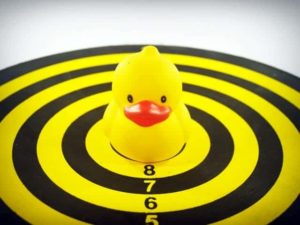
Setting Goals in Recovery
Many people who are new to recovery want to start setting goals. It’s exciting to come out of the fog and start to realize that life is really changing and all the work you’re doing is worth it. Your new way of life is worth the difficult times. You know that in the future, things will continue to change as you stay clean longer.
It's so important to start to focus on your goals in early recovery. Having goals can help you center yourself in life. With goals you can find purpose and meaning, even in the everyday.
When life gets stagnant, people can quickly get bored. Boredom can leads to depression. Both deppression and boredome are significant triggers for people who have substance use disorder. Boredom is not a good head space to be in.
Why Set Goals?
Setting goals can help you feel better about life, in general. Everyone needs a sense of purpose in recovery. Creating this purpose and living in harmony with it is something you’ll do throughout your life in recovery.
So how can you set realistic goals this year? A great way to work on this is by setting SMART goals, a system of goal-setting that have been used by leaders, marketers, and high-achievers for many years.
What is a S.M.A.R.T. goal?
S.M.A.R.T. is an acronym that means Specific, Measurable, Attainable, Relevant and Timely.
Let’s break this down further:
- SPECIFIC: Your goals should be specific. For example, if you’re going to get healthy, you have to choose the way you want to achieve this. For example, you may want to lower your blood pressure or start running.
- MEASURABLE: How will you know if you met this goal? (Maybe you’ll lower your blood pressure by 10 points? Or run every other day?)
- ATTAINABLE: Make sure that you’re able actually to achieve your goals. For example, you can’t become a nuclear scientist within the next year if you need to finish your GED.
- RELEVANT: Will these goals improve your life? Are they part of a larger goal that you want to achieve? Break big goals into smaller chunks so that they are achievable and pointing your life in the right direction.
- TIMELY: You need to have a time limit. This is one way to hold yourself accountable. Give yourself six months to find a job or three months to pay off your credit card. Just remember: you need to be realistic.
Sometimes life can interfere with your plans. For example, if you wanted to go back to school, but you don’t have the funding, you’ll have to put your goal on hold and focus instead on the purpose of funding for classes. When life interrupts your goals, you may have to work towards other things. You can always go back and change your goals if you want to.
In recovery, learning to adapt is a part of your life. If you’re feeling stuck or lost, it’s good to be able to speak to others in 12-step meetings about how they worked through those problems. Ask for help or advice when you need it.
Get Help for an Alcohol or Drug Problem
If you need help getting clean and sober, we can help you get started on your journey. No matter what drug you use or how long you've been using it, we can help you stop. Recovery is possible! Give us a call at 619-363-4767.
Categories
Recovery






